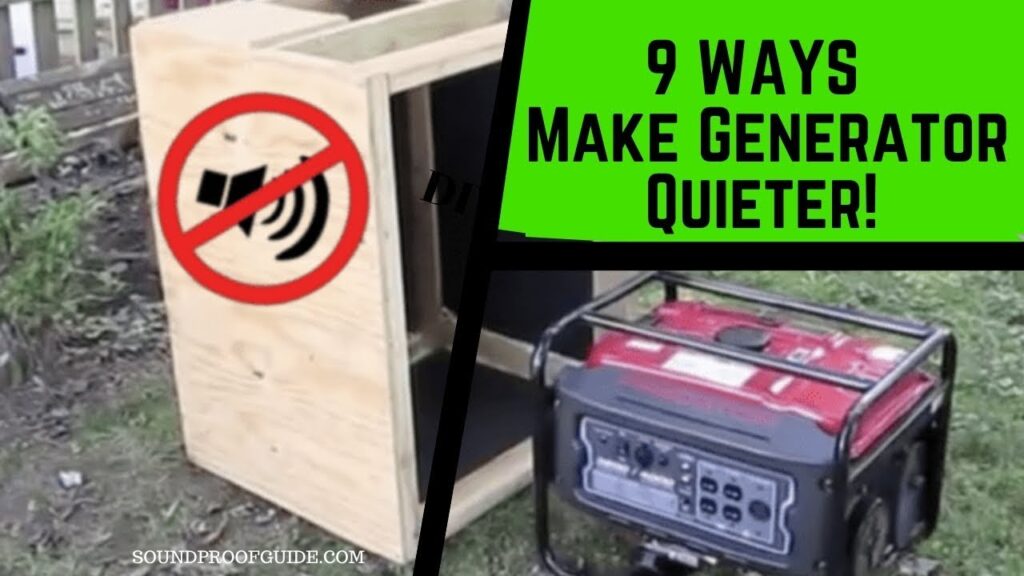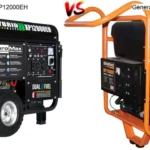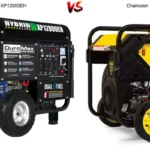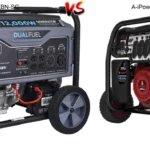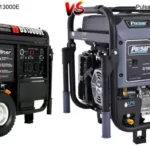Generators have become a popular choice for many homeowners when it comes to providing a reliable source of electricity in the event of a power outage. However, if not kept in check, generators can become very noisy and disrupt the peace of your neighborhood. In this comprehensive guide, we will provide you with the information and resources you need to effectively silence your generator and keep your neighborhood at peace.
Types of Generators
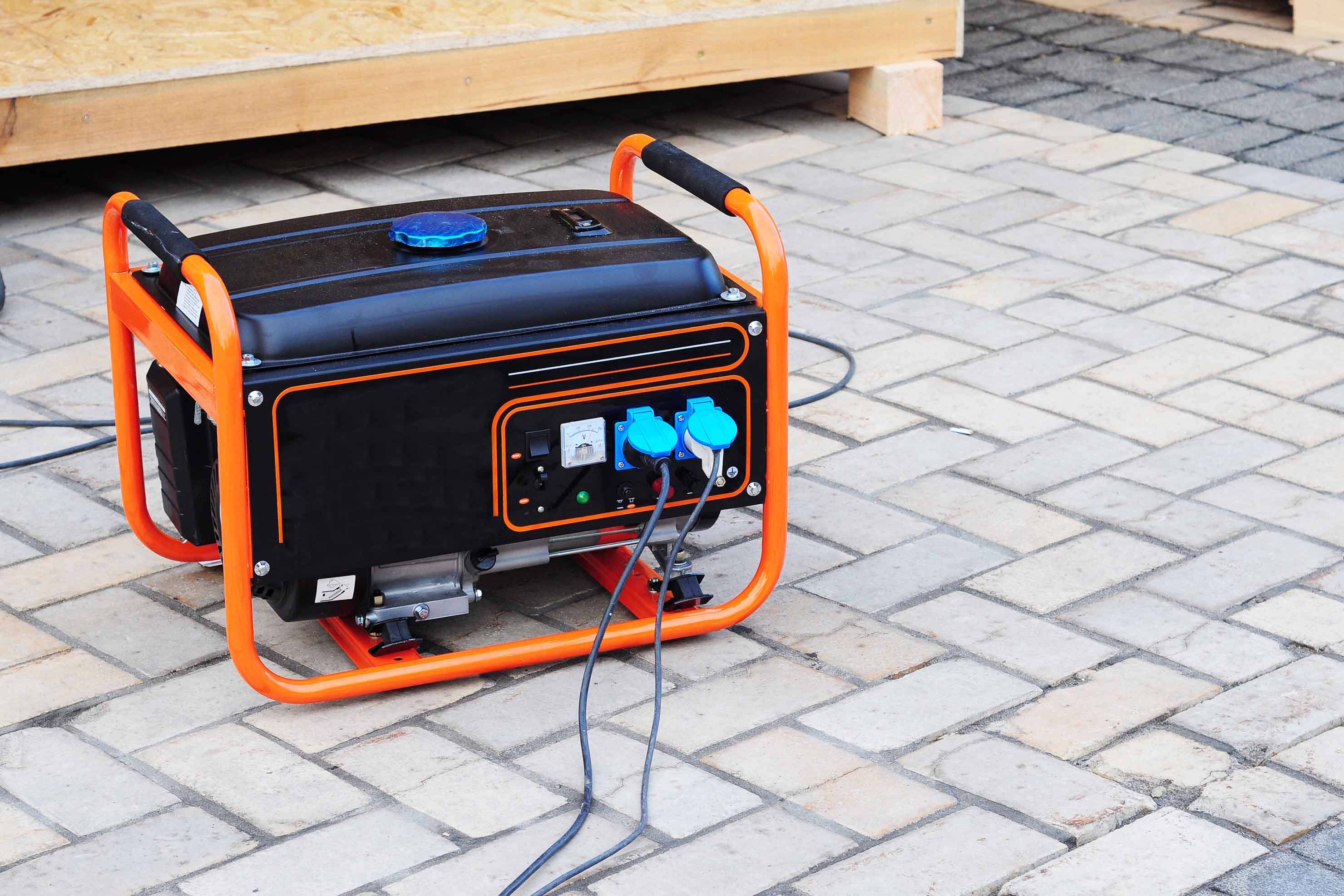
1 Portable Generators
Portable generators are the most common type of generator used today. They are relatively small, easy to transport, and can be used for a variety of purposes, from powering tools to providing emergency backup power for your home. Portable generators are typically powered by gasoline, diesel, propane, or natural gas.
2 Standby Generators
Standby generators are larger and more powerful than portable generators and are installed permanently outside of a home or business. They are powered by natural gas, diesel, or propane and are designed to automatically switch on in the event of a power outage.
3 Inverter Generators
Inverter generators are a type of portable generator that are designed to provide clean, stable power. They are quieter than traditional portable generators and can be used for sensitive electronics such as computers, laptops, and TVs. Inverter generators are powered by gasoline, diesel, or propane.
Factors to Consider when Choosing a Generator
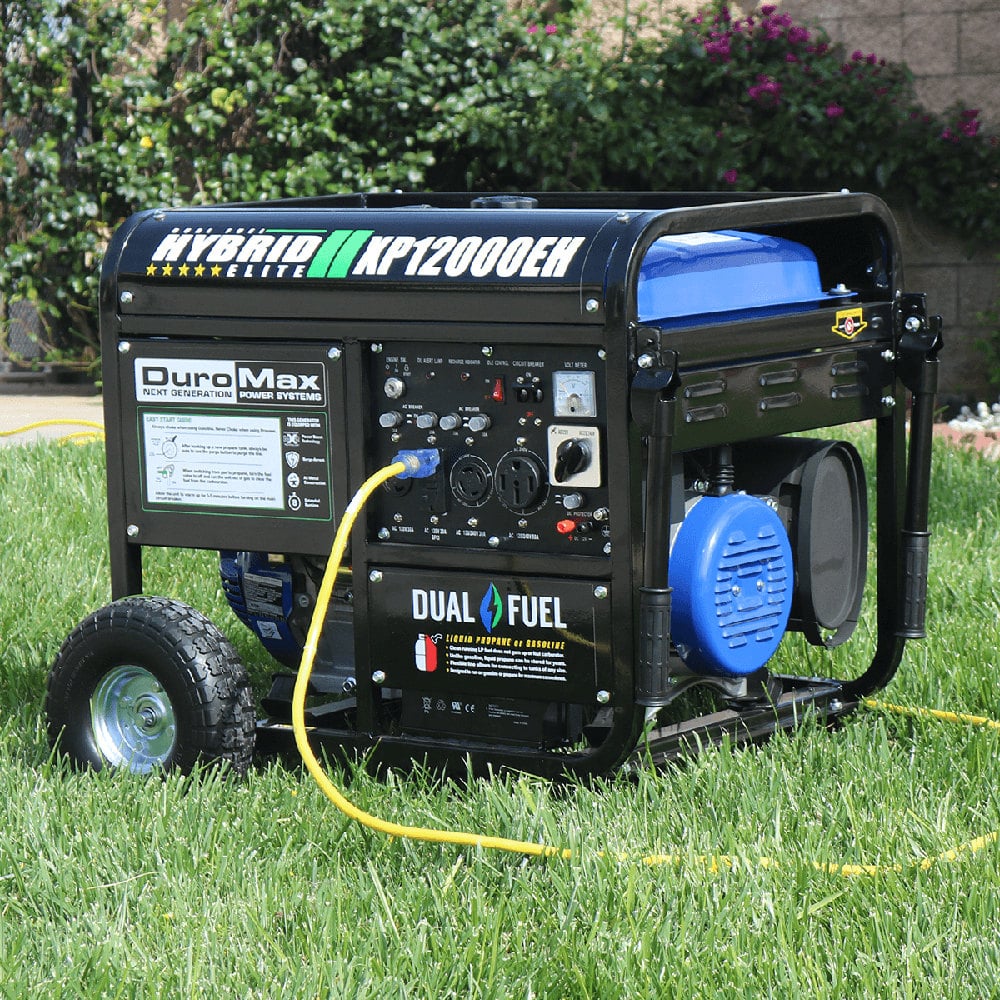
When it comes to generators, there are several factors you should consider when selecting one. Not only do you need to keep in mind the size and capacity of the generator, but also the noise level and other features. Here are some of the main points you should consider when selecting a generator.
Size and Capacity
The most obvious factor you should consider is the size and capacity of the generator. The size of the generator will determine how much power it can generate and the size of the space needed for it. You should also consider what you will be using the generator for. If you need to power heavy machinery, you’ll need a more powerful generator than if you’re running smaller appliances.
Noise Level
Noise level is a crucial factor when it comes to choosing a generator. If the generator is too loud, it can be disruptive and annoying, especially if you’re using it in a residential area. To ensure your generator is not too loud, you should look at the decibel rating of the generator before you make a purchase.
Fuel Type
Another important factor to consider is the type of fuel the generator uses. Some generators are powered by gasoline, while others use diesel or propane. Depending on the type of fuel you choose, you may need to purchase additional fuel or supplies to keep it running.
Cost
Cost is also an important factor to consider when choosing a generator. Generators can range from a few hundred dollars for a basic model to several thousand dollars for a more powerful one. You should also factor in the cost of fuel and maintenance into your budget.
Additional Features
Finally, you should consider any additional features the generator may have. Some generators come with features such as an automatic shutoff switch, a digital display, or a remote start. These features can be useful, so you should think about which ones are most important for your needs.
| Factor to Consider | Description |
|---|---|
| Size and Capacity | The size of the generator will determine how much power it can generate and the size of the space needed for it. |
| Noise Level | The decibel rating of the generator should be looked at to ensure it won’t be too loud. |
| Fuel Type | The type of fuel the generator uses should be taken into consideration. |
| Cost | The cost of the generator, fuel and maintenance should be factored into the budget. |
| Additional Features | Features such as an automatic shutoff switch, a digital display, or a remote start should be taken into consideration. |
By considering all these factors, you can make sure that you choose the right generator for your needs and make sure it won’t be too loud.
Benefits of Silencing Generators
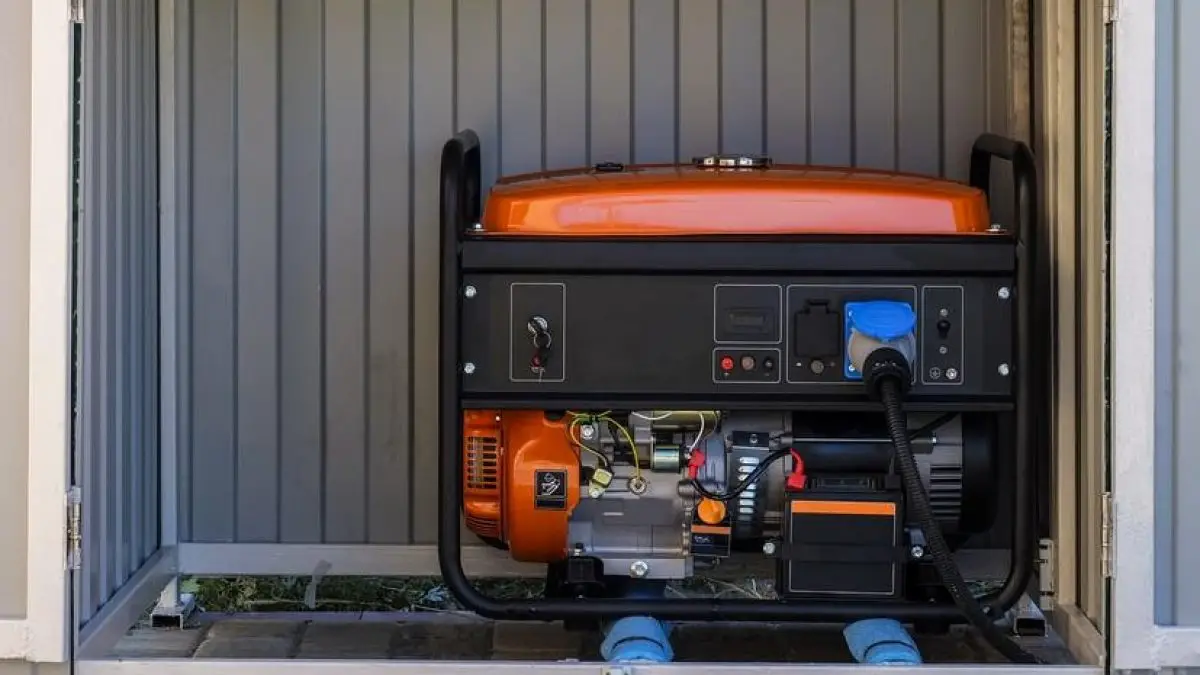
Generator noise can be extremely disruptive and annoying for those living close to or around the generator. Fortunately, there are a number of ways to effectively silence generators so that they don’t cause a disturbance. Silencing a generator can provide many benefits, including:
- Greater Comfort: Reducing the noise of a generator can make living near the generator much more comfortable and peaceful. This can make outdoor activities such as relaxing and entertaining much more enjoyable.
- Improved Sleep: By reducing generator noise, those living near the generator can sleep better and more peacefully. This can lead to improved overall health and wellbeing.
- Increased Concentration: Generators can make it difficult to concentrate in the home or office. By silencing a generator, it’s much easier to focus on tasks and make progress.
- Reduced Stress: The constant noise of a generator can be stressful. By reducing the noise, it can help to keep stress levels in check and provide a more relaxed atmosphere.
- Improved Safety: Reducing the noise of a generator can make it much easier to hear emergency and safety alerts. This can help to keep people safe in emergency situations.
Silencing a generator can provide numerous benefits for those living or working near the generator. It can improve comfort, sleep, concentration, and safety, as well as reduce stress levels. For these reasons, it’s important to take measures to effectively silence a generator.
Methods for Silencing Generators
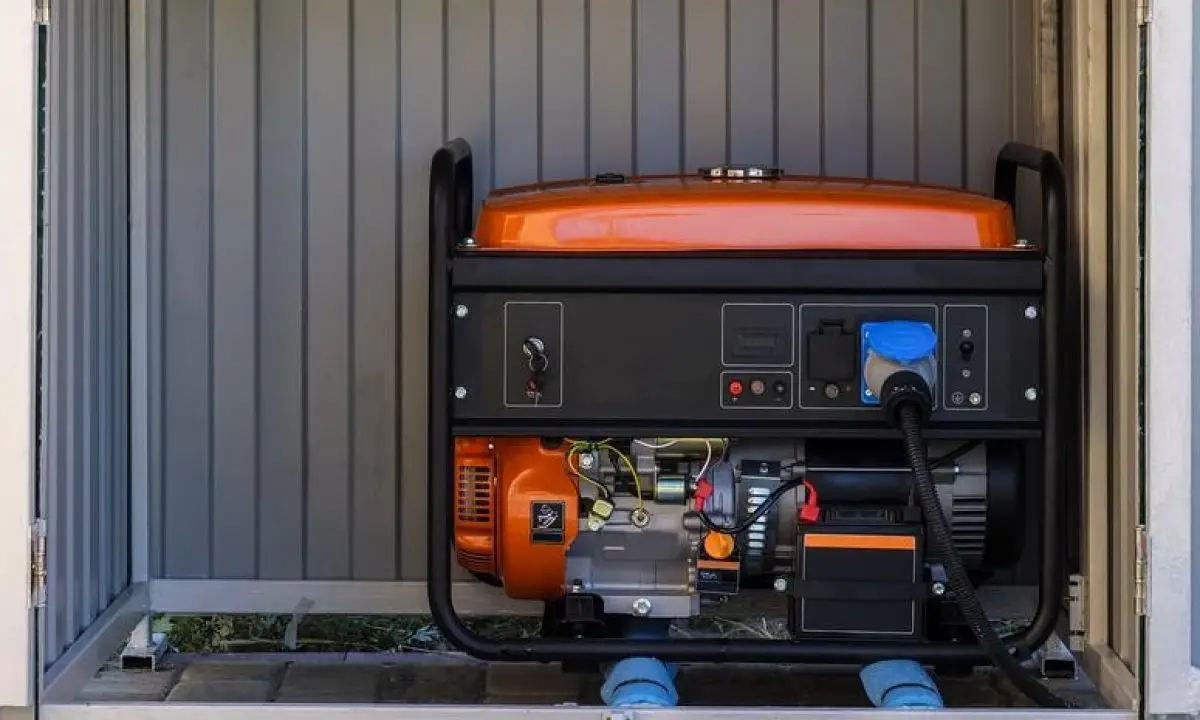
1. Installing a Generator Muffler
One of the quickest and easiest ways to reduce the noise of a generator is to install a generator muffler. A generator muffler is an after-market accessory that can be attached to the generator’s exhaust system. It works by redirecting the exhaust and trapping the sound waves, resulting in a quieter generator. There are many different types of generator mufflers available on the market ranging from small, inexpensive units to larger and more expensive models.
2. Using Soundproofing Materials
Another option for silencing a generator is to use soundproofing materials such as foam, insulation, or sound blankets. Soundproofing materials can be used to line the walls of the enclosure that houses the generator, as well as to line the exterior of the generator itself. This will help to absorb some of the sound waves, resulting in a quieter generator. In addition, these materials can be purchased relatively inexpensively and are easy to install.
3 Adding a Soundproof Enclosure
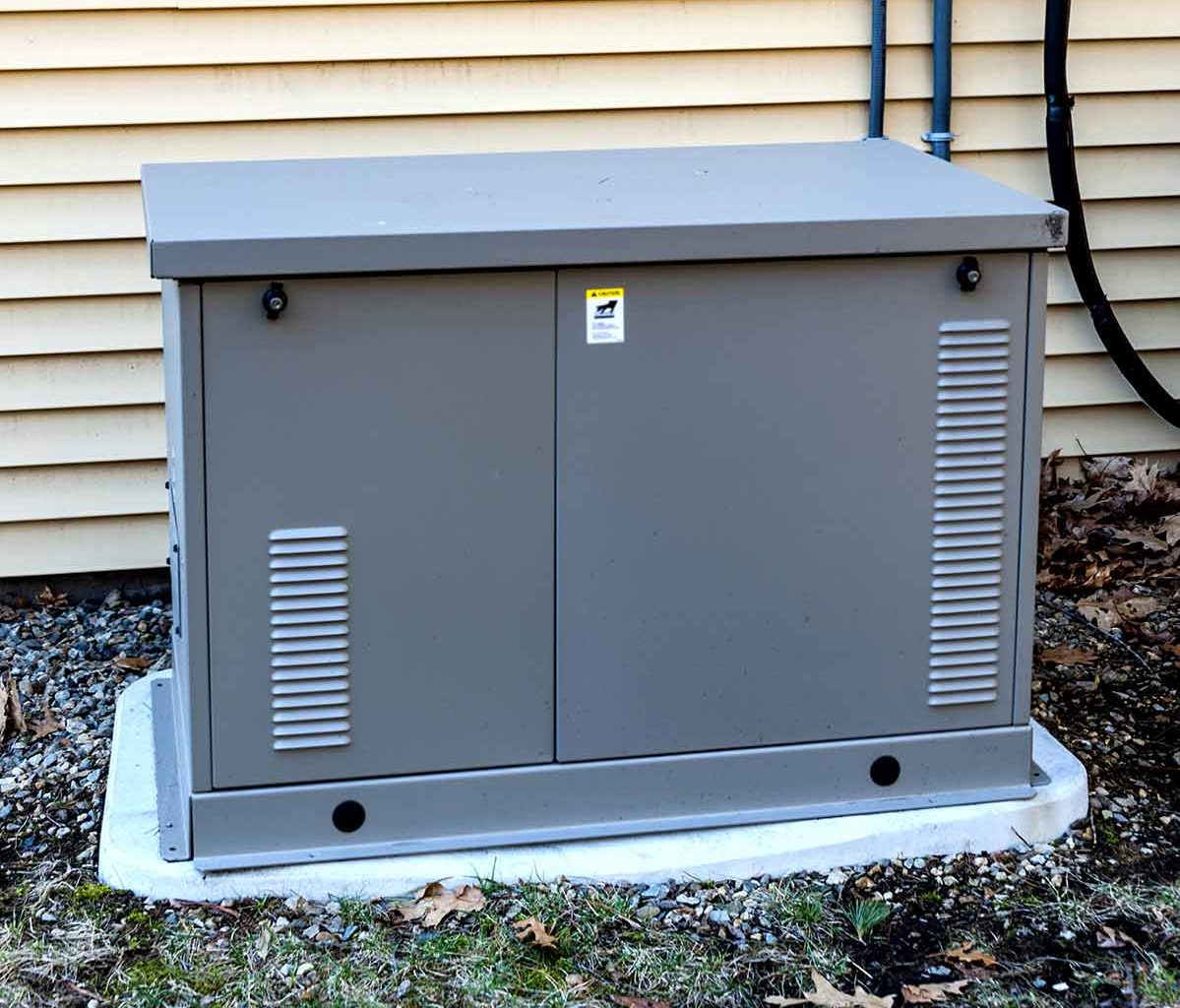
Adding a soundproof enclosure to your generator is a great way to reduce the noise levels produced. A soundproof enclosure can be constructed using a variety of materials such as foam, plywood, and other soundproofing materials. When constructing the enclosure, make sure to include adequate insulation and ventilation to ensure that the generator does not overheat. Additionally, consider the size of the generator and the size of the enclosure relative to one another to ensure that the generator is properly contained inside.
Once the enclosure is built, it can be placed around the generator and sealed off with door and window seals. This will help to reduce the amount of sound that escapes the enclosure, making it significantly quieter. Additionally, soundproofing materials can be added to the interior walls of the enclosure to further reduce the sound levels.
In addition to reducing the noise produced by the generator, an enclosure can also help to protect the generator from the elements. This will help to prevent the generator from being damaged by rain, snow, and other elements. Additionally, the enclosure will also keep the generator clean and reduce the amount of dirt and debris from entering the generator.
Finally, if the generator is located in an area where temperatures can reach extreme levels, such as an area with high humidity, an enclosure can also help to keep the generator cool, allowing it to run more efficiently and safely. This will help to prolong the life of the generator and help it to run more efficiently.
4 Going Electric
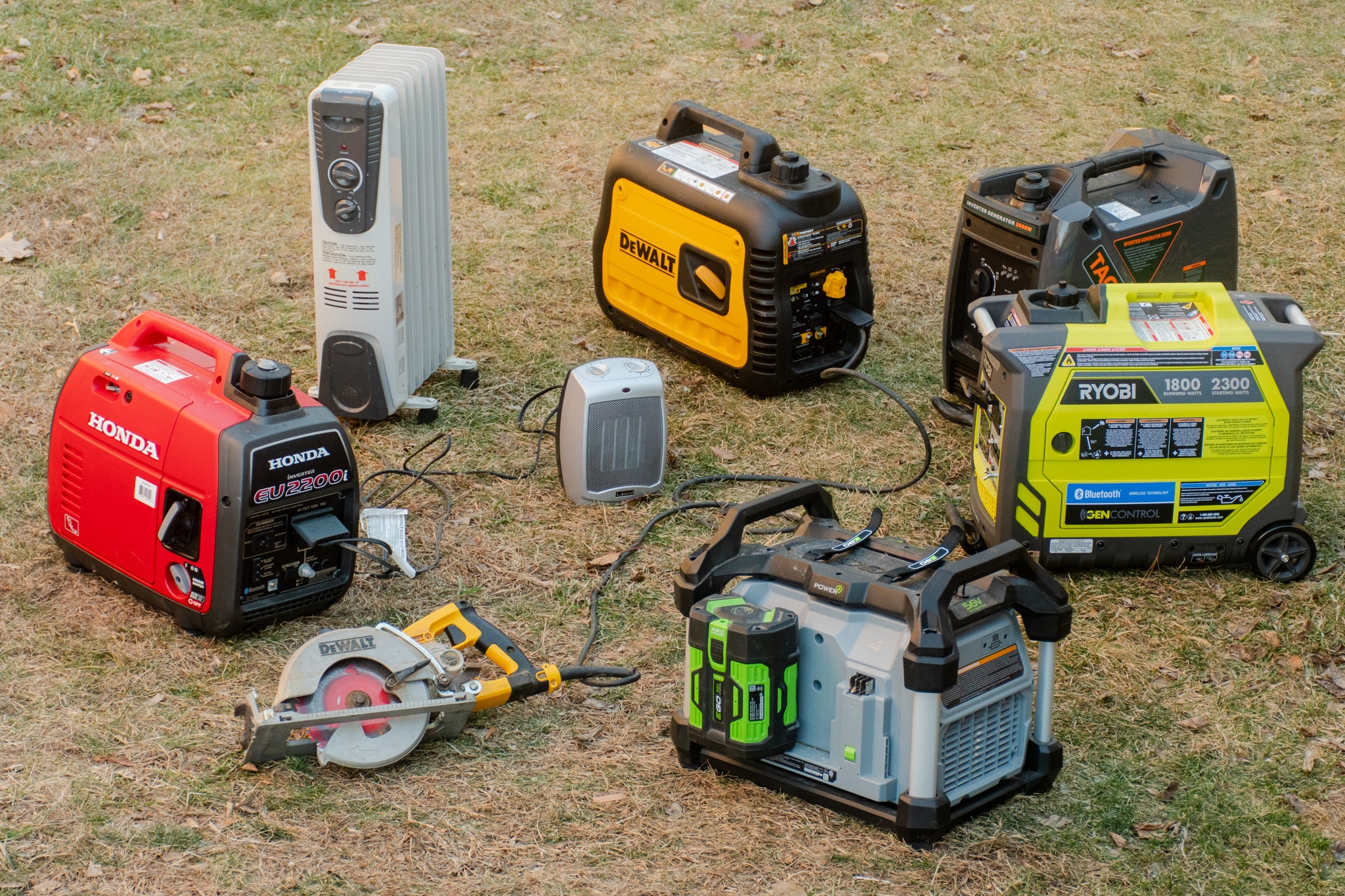
- Consider investing in alternative energy sources such as solar, wind, or hydro power.
- Look into energy efficient appliances that will reduce the amount of energy needed to run your home.
- Change out your old generator for an electric generator. Electric generators are quieter and more efficient.
- Look for ways to reduce the amount of energy you are using. This might include turning off lights when not in use, unplugging electronics when not in use, and using LED or CFL bulbs.
Making the switch from a traditional generator to an electric one can be a big investment, but it is worth it in the long run. Electric generators are quieter, more efficient, and require less maintenance than traditional generators. Additionally, investing in alternative energy sources can help to reduce the amount of energy needed to run your home. Taking the time to look into energy efficient appliances, reducing energy consumption, and investing in alternative energy sources can all help to reduce the noise coming from your generator and make your home a quieter, more pleasant place to live.
5 Adjusting Generator Settings

Generators are a great source of back-up power for homes and businesses. Unfortunately, they can be quite loud when running. Fortunately, there are ways to reduce the noise from a generator by adjusting its settings. Here are 5 ways to adjust your generator settings to reduce noise:
| Setting | Action |
|---|---|
| Fuel/Air Mixture | Adjust the fuel/air mixture to produce a slightly leaner mixture. This will slightly reduce the combustion noise. |
| Muffler | Replace the stock muffler with an aftermarket muffler. This will reduce the sound of gases exiting the generator. |
| Exhaust Pipe | Extend the exhaust pipe. This will help direct the sound away from the generator and into the atmosphere. |
| Cooling Fan | Replace the cooling fan with a quieter model. This will reduce the noise of the fan and the air moving through it. |
| Vibration Dampeners | Install vibration dampeners on the frame of the generator. This will reduce the noise generated by the vibrations of the engine. |
By following these steps, you can greatly reduce the noise coming from your generator. Be sure to consult a professional if you are unsure of how to adjust the settings of your generator.
Maintenance Tips for Keeping a Generator Quiet
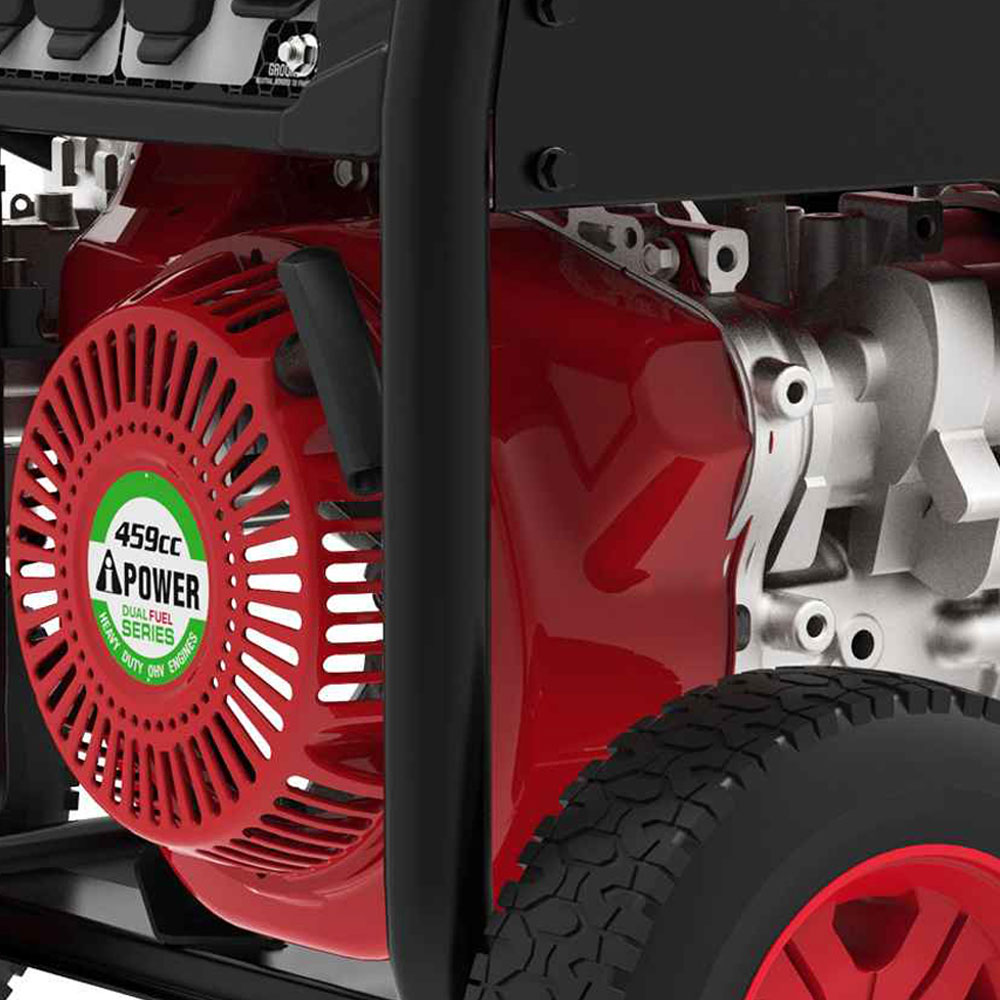
Generators can be loud and disruptive, but there are some simple maintenance tips and tricks you can use to keep them running quietly. Here are some tips to help keep your generator running quietly:
1. Regularly check and replace the air and fuel filters. Dirty filters can cause the engine to run louder than necessary. Make sure to check these filters at least once every three months and replace them if needed.
2. Make sure all the connections are tight. This includes the fuel lines, spark plug wires, and any other connections that may be loose. A loose connection can cause the generator to vibrate more, resulting in increased noise levels.
3. Check the muffler and exhaust system for any blockages or restrictions. A blocked or restricted exhaust system can cause the generator to run louder.
4. Keep the generator well-lubricated. Make sure to use the correct oil and lubricants recommended by the manufacturer. This will help reduce friction on the engine and help keep it running quietly.
5. Make sure the generator is on a solid, flat surface. This will help reduce vibrations, which can cause the generator to become louder.
These maintenance tips will help keep your generator running quietly and efficiently. If you follow these tips and perform regular maintenance, you should be able to enjoy a quiet and peaceful environment.
Pros and Cons of Silencing a Generator
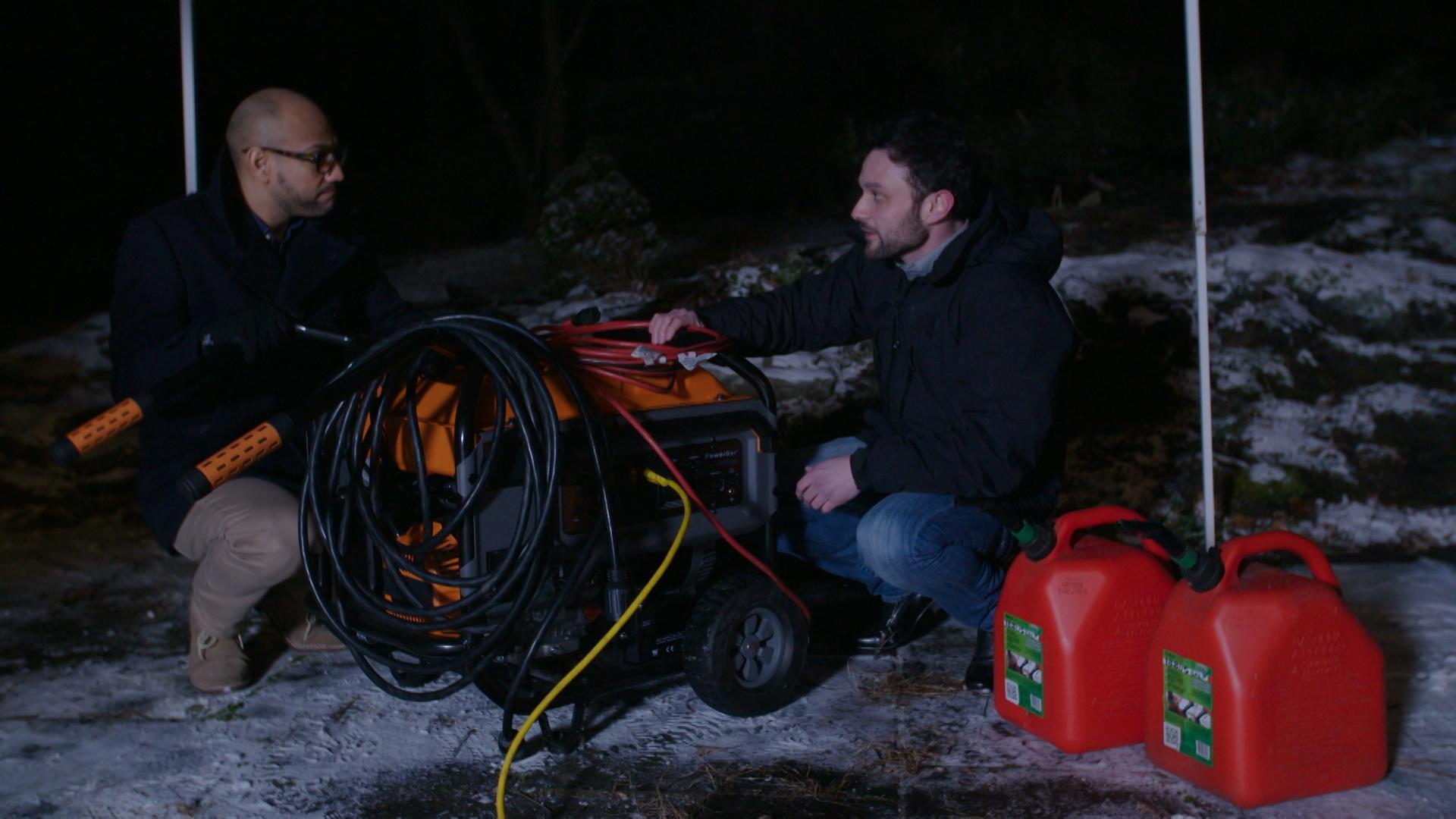
It is common knowledge that generators can generate a lot of noise and this can be disruptive. Thus, it is important to consider both the pros and cons of silencing a generator before deciding to do so.
- Pros
- Reduced Noise Pollution – Silencing a generator can reduce the amount of noise pollution that it produces. This is especially beneficial for those who live near generators and are constantly disturbed by the noise.
- Increased Safety – Generators can be a safety concern if they are not properly maintained. By silencing the generator, it will ensure a safer environment for everyone.
- Reduced Maintenance – Silencing a generator can reduce the amount of maintenance that it requires. This can save money in the long run.
- Cons
- Increased Cost – Silencing a generator can be a costly process, and it may not be feasible for some people.
- Reduced Efficiency – Silencing a generator can reduce its efficiency, as it will require more fuel to power it.
- Environmental Impact – Silencing a generator can have an environmental impact, as it will produce more emissions due to the increased fuel consumption.
In conclusion, silencing a generator is something that should be carefully considered. It can have both positive and negative effects, and one must weigh the pros and cons before making a decision.
Cost of Silencing a Generator
The cost of silencing a generator depends on several factors. The cost can vary from a few hundred dollars to several thousand dollars, depending on the size and complexity of the generator and the type of silencing system installed. Here are some factors that can affect the cost of silencing a generator:
- Size of the generator: The size of the generator will determine the cost of the silencing system. Generally, larger generators require more sophisticated silencing systems which can be more expensive.
- Type of silencing system: Different types of silencing systems are available, each with their own costs. It is important to consult an expert to determine the best silencing system for your generator.
- Location of the generator: If the generator is located in a public area, such as a park or public square, the cost of the silencing system may be higher due to the extra measures needed for public safety.
- Installation costs: The cost of installation will depend on the complexity of the silencing system and the difficulty of the installation.
It is important to consult an expert in order to determine the best silencing system for your generator and get an accurate estimate of the cost. A reputable supplier should be able to provide a detailed cost breakdown of the silencing system and its installation.
Frequently Asked Questions
1. What are the best methods for making a portable generator quieter?
Generators are a great source of power when you’re away from a traditional power source, but they can be quite loud. If you’re looking for ways to quiet down your portable generator, there are some simple solutions. Here are the best methods for making a portable generator quieter:
- Add an enclosure or acoustic foam insulation
- Install a muffler or spark arrester
- Place the generator further away from people or animals
- Use a soundproofing blanket
- Check for loose parts and tighten them
Adding an enclosure or acoustic foam insulation around the generator can help reduce the noise from the engine. Installing a muffler or spark arrester can also reduce the noise from the exhaust. Placing the generator further away from people or animals can help lessen the impact of the noise. A soundproofing blanket can also reduce the noise from the generator and keep it contained. Finally, checking for loose parts and tightening them can help reduce the noise from rattling.
By following these steps, you can make your portable generator quieter and more enjoyable to use.
2. How can I quiet a Champion Generator?
Champion generators are known for their high performance and reliable power output, but they can also be quite loud. Fortunately, there are several methods that can be used to quiet a Champion generator. Here are some of the most effective:
- Install a Generator Box or Generator Muffler: The easiest and most effective way to reduce the sound output of a Champion generator is to install a soundproof generator box or generator muffler. These boxes and mufflers are designed to absorb sound and reduce noise levels significantly.
- Install Soundproof Foam Panels: Another way to reduce the noise levels of a Champion generator is to install soundproof foam panels. These panels absorb sound and reduce the noise level of the generator significantly.
- Place the Generator in a Soundproof Enclosure: Another option is to place the generator in a soundproof enclosure. This will help to reduce the noise levels of the generator significantly and also provide additional protection.
- Install a Soundproof Blanket: Another effective way to reduce the noise levels of a Champion generator is to install a soundproof blanket. This will help to absorb sound and reduce noise levels significantly.
- Install a Generator Silencer: A generator silencer can also be used to reduce the noise levels of a Champion generator. These silencers are designed to absorb sound and reduce noise levels significantly.
- Install a Generator Sound Barrier: A sound barrier can be installed around the generator to help reduce noise levels significantly. This will help to reduce the sound output of the generator and make it quieter.
These are some of the most effective methods for quieting a Champion generator. By implementing one or more of these methods, it is possible to significantly reduce the noise levels of the generator and make it much quieter.
3. What are the best ways to silence a generator?
There are several ways to reduce the noise from a generator. Depending on the type of generator you have, some of these techniques may be more effective than others.
- Install a muffler: Installing a muffler on a generator can be an effective way to reduce the noise. A muffler works by creating an expansion chamber that dissipates the sound waves created by the engine.
- Install a noise shield: A noise shield is a metal barrier that surrounds the generator and deflects noise away from the area. Noise shields can be permanently installed or they can be purchased as portable units.
- Place the generator on a platform: If you place the generator on a platform or other vibration-absorbing surface, it can help to reduce the noise. This is because it will absorb some of the vibration created by the engine.
- Install an acoustic enclosure: An acoustic enclosure is a box-like structure that is designed to absorb noise. It is usually made of a combination of sound-absorbing materials and is designed to contain the noise from the generator.
All of these techniques can be effective in reducing the noise from a generator, but the most effective way to reduce noise is to invest in a quiet generator. Quiet generators are specifically designed to emit less noise than standard generators, and they can be a great investment for anyone who wants to reduce the noise from their generator.
4. What techniques can I use to quiet a portable generator?
- Insulate the generator – Adding insulation, such as foam mats or rubber gaskets, can help reduce the noise of the generator.
- Use a soundproof enclosure – Enclosing the generator in a soundproof box or shed can help reduce the noise it produces.
- Install a muffler – Installing a muffler on the generator can help reduce the noise it produces.
- Install a silencer – Installing a silencer on the generator can help reduce the noise it produces.
- Install a noise-reducing air filter – Installing a noise-reducing air filter on the generator can help reduce the noise it produces.
- Install an exhaust fan – Installing an exhaust fan on the generator can help reduce the noise it produces.
- Install a silencer on the exhaust – Installing a silencer on the generator’s exhaust can help reduce the noise it produces.
- Install a sound-absorbing material – Installing a sound-absorbing material, such as foam, on the generator can help reduce the noise it produces.
5. What Strategies Should I Use to Make a Champion Generator Quieter?
- Use rubber mounts to reduce vibration.
- Install a muffler or a spark arrestor to minimize noise.
- Choose a generator with a lower decibel rating.
- Place the generator on a flat surface in an open area away from walls or other obstructions.
- Use soundproof material to create a quiet box or barrier around the generator.
Conclusion
Generators are a great way to provide power in remote areas, but they can also be noisy. Thankfully, there are a variety of ways to silence your generator. From choosing the right generator to installing effective soundproofing materials, the options are many. With the tips in this comprehensive guide, you should be able to find a solution that works best for your situation. Whether you want a quieter generator for camping or for more permanent use, the methods in this guide can help you make it happen.
References
- Kilby, J. (2020). The Ultimate Guide to Generator Reviews. Generator Reviews. Retrieved from https://www.generatorreviews.org/
- Smith, A. (2020). How to Choose the Best Generator for Your Needs. Generator Reviews. Retrieved from https://www.generatorreviews.org/how-to-choose-the-best-generator-for-your-needs/
- White, H. (2020). How to Maintain and Care for Your Generator. Generator Reviews. Retrieved from https://www.generatorreviews.org/how-to-maintain-and-care-for-your-generator/
- Gibson, P. (2020). Generator Safety and Protection Tips. Generator Reviews. Retrieved from https://www.generatorreviews.org/generator-safety-and-protection-tips/
- Jones, M. (2020). How to Reduce Generator Noise. Generator Reviews. Retrieved from https://www.generatorreviews.org/how-to-reduce-generator-noise/
